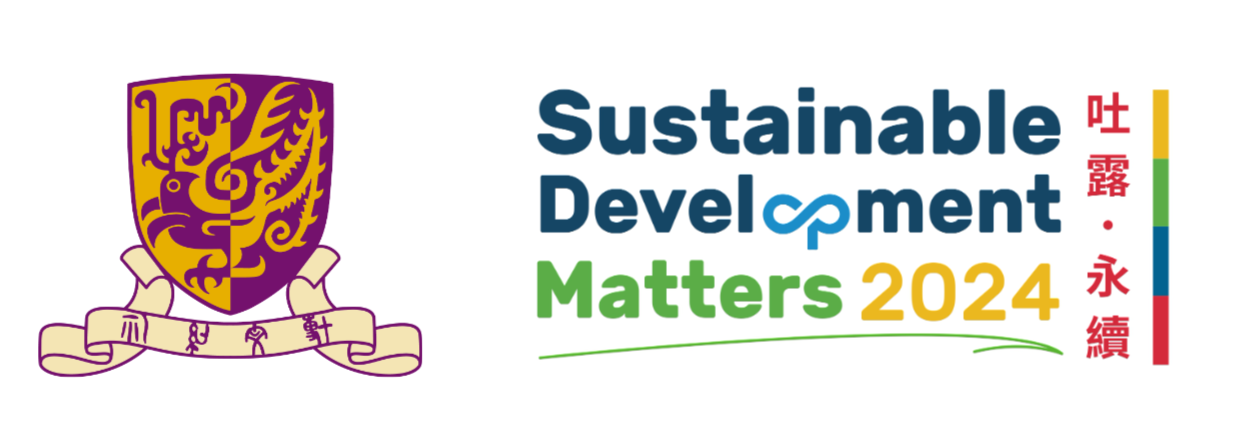SDG 13| Climate Action
Take urgent action to combat climate change and its impacts
Climate change continues to be a major concern, which profoundly impacts human health, economies and politics. CUHK is committed to pursuing climate action, and was the first local university to pledge to become carbon neutral by 2038. We strive to stand at the forefront of climate research, promoting positive change in knowledge, attitudes, and behaviour concerning climate change.
Curriculum
Policies
As a socially responsible institution, CUHK has introduced the Social Responsibility and Sustainable Development Policy. The University also strives to achieve university social responsibility (USR) goals that are in alignment with the Sustainable Development Goals adopted by the United Nations. One of the USR goals is to achieve carbon neutrality by 2038, highlighting the university’s dedication to addressing climate change and reducing its carbon footprint.
Energy consumption is one of the main sources of greenhouse gas emissions. CUHK’s Energy Efficiency and Conservation Policy and Energy Efficiency and Conservation Guidelines are designed to encourage campus users to use energy responsibly and more efficiently. By implementing energy-saving infrastructures and promoting related practices, CUHK endeavours to minimize energy consumption and carbon emissions.
The University has set up the Waste Management Policy and Waste Management Guidelines, which are based on a ‘waste management hierarchy’. Preventing and reducing waste is a top priority in our waste management regime, followed by the cyclical use of resources. CUHK is committed to launching effective waste management strategies that exceed the legislative and regulatory requirements, and continually seeks to improve its performance.
CUHK hosts a variety of campus-based and community-based events throughout the year. The University’s Guidelines for Sustainable Event Planning and Management and Guidelines for Sustainable Student Orientation are designed to help all its members integrate sustainable principles and practices into the planning process at an early stage, resulting in more sustainable and climate-friendly events.
Research
Cutting the concentration of atmospheric carbon dioxide is of paramount importance in the fight against global warming. Professor Ying Wang’s research team from the Department of Chemistry has devised a carbon dioxide recycling electrolyser, which allows the conversion of the carbon dioxide into valuable chemical raw materials. This green technology provides a promising low-carbon alternative for fossil fuel-based materials in chemical industries. The results of this research project have been recently published in Nature Catalysis.
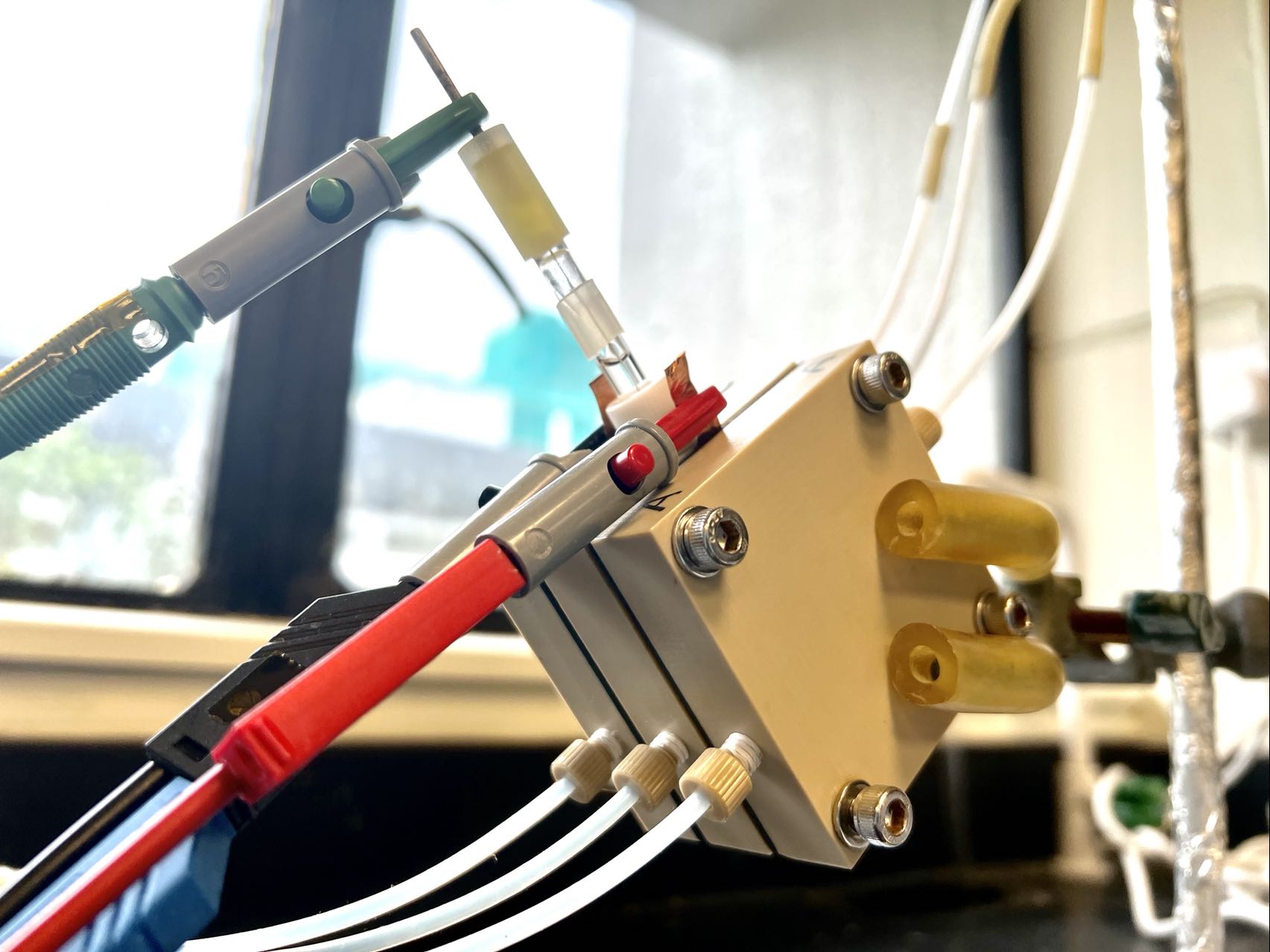
A study led by Professor Amos Tai from the Earth System Science Programme and the University of Exeter’s Joint Centre for Environmental Sustainability and Resilience estimated that up to 22% of staple food crops will be lost by 2050 due to ozone pollution and climate change. The study was the first to estimate the yearly integrated impact of ozone pollutants, carbon dioxide emissions, and climate change on crop yields till 2100. The study’s findings provide important information that can be used in the search for sustainable solutions to end hunger, achieve food security, and improve nutrition.
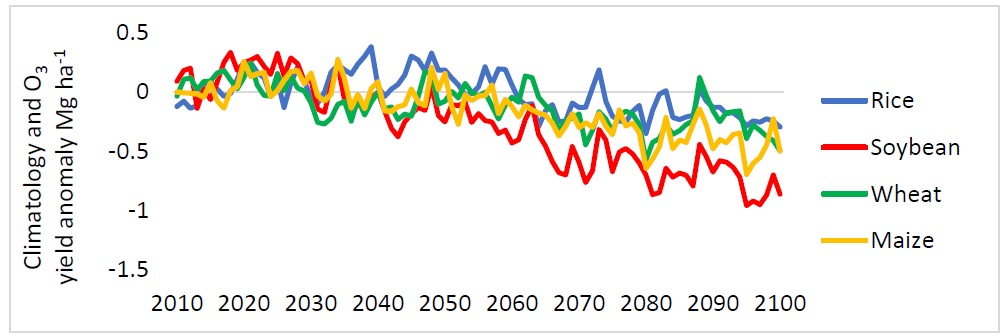
Commitment to carbon neutrality
In its Strategic Plan 2021–2025, CUHK pledged to respond to the climate emergency by becoming carbon neutral by 2038. To achieve this goal, CUHK has implemented a series of important decarbonization measures, including the adoption of renewable energy, construction of green buildings, and promotion of green mobility. We have also established schemes such as the Green Office Programme and the Energy Efficiency Implementation Fund, which engage the university community in the pursuit of climate action. The University also contributed to the development of the United Nations’ Sustainable Development Solutions Network’s Net Zero on Campus Guide & Online Toolkit as a member of the advisory panel. This collaboration allowed CUHK to share its decarbonization strategies and contribute to the collective knowledge on achieving net zero emissions on campuses.
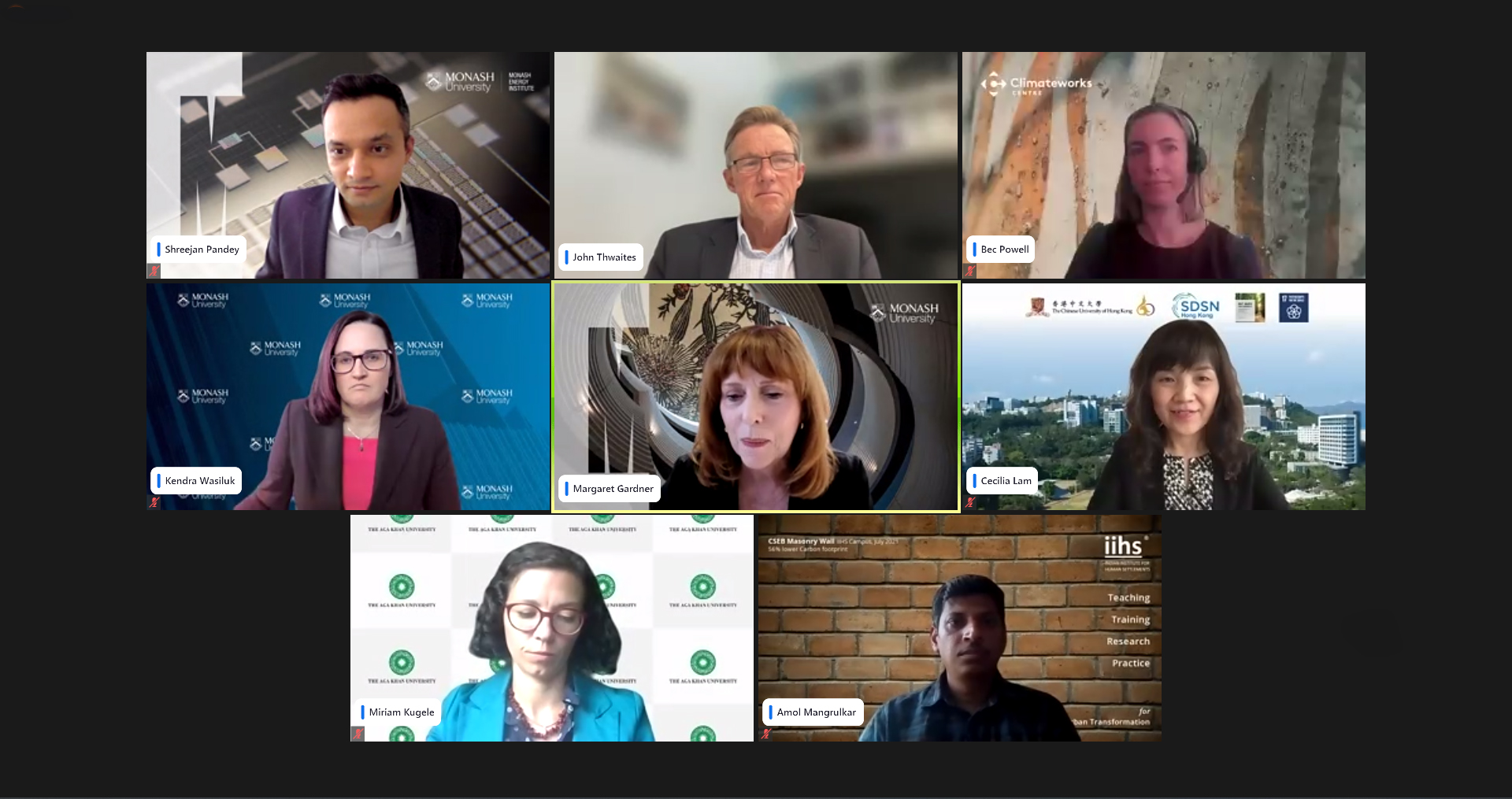
Local education programmes on climate change
With support from the Hong Kong government’s Environment and Conservation Fund (ECF), the Jockey Club Museum of Climate Change (MoCC) launched an 18-month community engagement project, ‘ECF Mobilizing Community Climate Action by Future Museum Curators’. Through a unique model of experiential and problem-based learning, MoCC equipped 70 secondary school participants with the knowledge and skills to become ‘Future Museum Curators’. Upon completion of training, participating teams presented their work in 10 virtual exhibitions with various sustainability challenges, such as climate change, carbon reduction and waste management. Three best-performed teams were selected to work with the MoCC on the physical ‘Humanity–Climate–Nature: A Future Museum Curators’ Exhibition, which took place from October 2022 to January 2023. The student-led exhibition invited visitors to explore how human activities give rise to sustainability challenges, and called for immediate climate action from the community to address these threats.

The University partnered with the Italian Cultural Institute of Hong Kong and the Hong Kong chapter of the United Nations’ Sustainable Development Solutions Network (SDSN Hong Kong) in presenting the 1st online Distinguished SDG Lecture ‘Climate Change: Vulnerability and Adaptation’ in May 2022. Mr Grammenos Mastrojeni, Senior Deputy Secretary General, Secretariat of the Union for the Mediterranean, delivered a lecture heard by over 100 audiences from all around the world. The lecture addressed the dynamic balance between humankind and nature, where environmental instability such as climate change would trigger human fragility and conflict, and in return, would paralyze society’s ability to manage the ecosystem, and eventually generate self-amplifying feedback. This relationship reiterated the importance of achieving the 17 United Nation’s Sustainable Development Goals and returning the planet to its predictable and stable form.
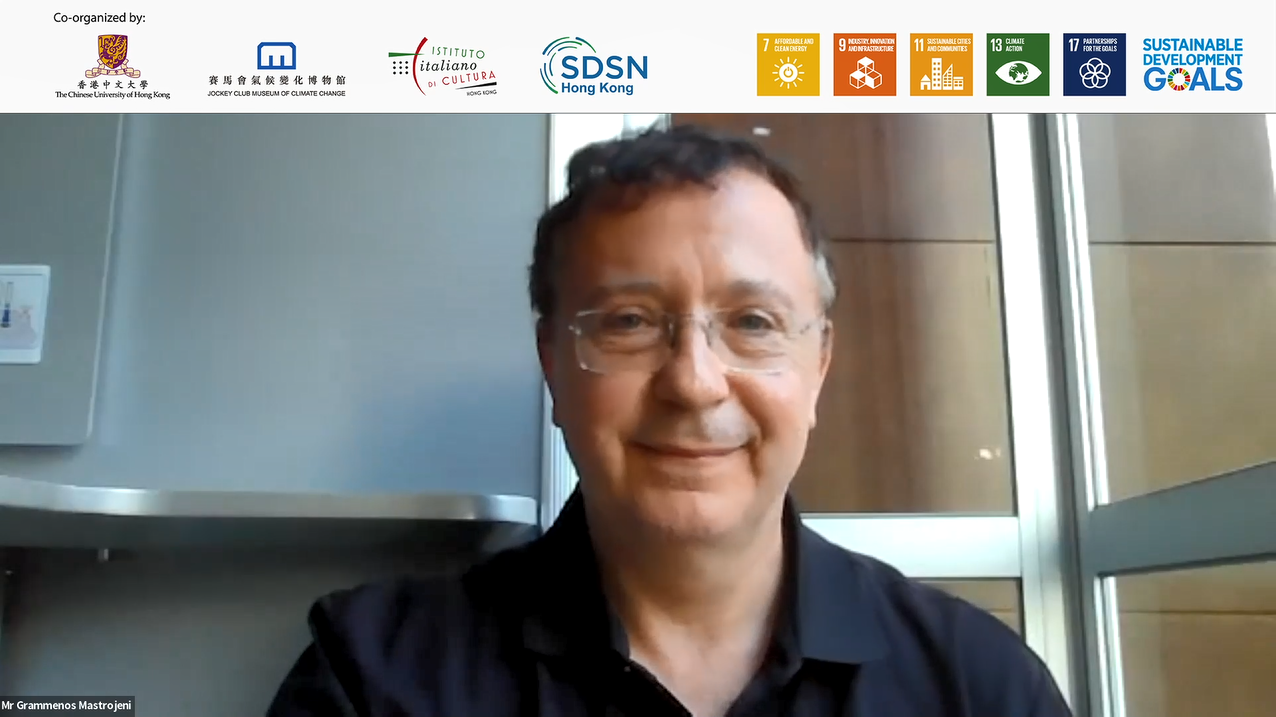
PREVIOUS
Responsible Consumption and Production
SDG 12
NEXT
Life Below Water
SDG 14
